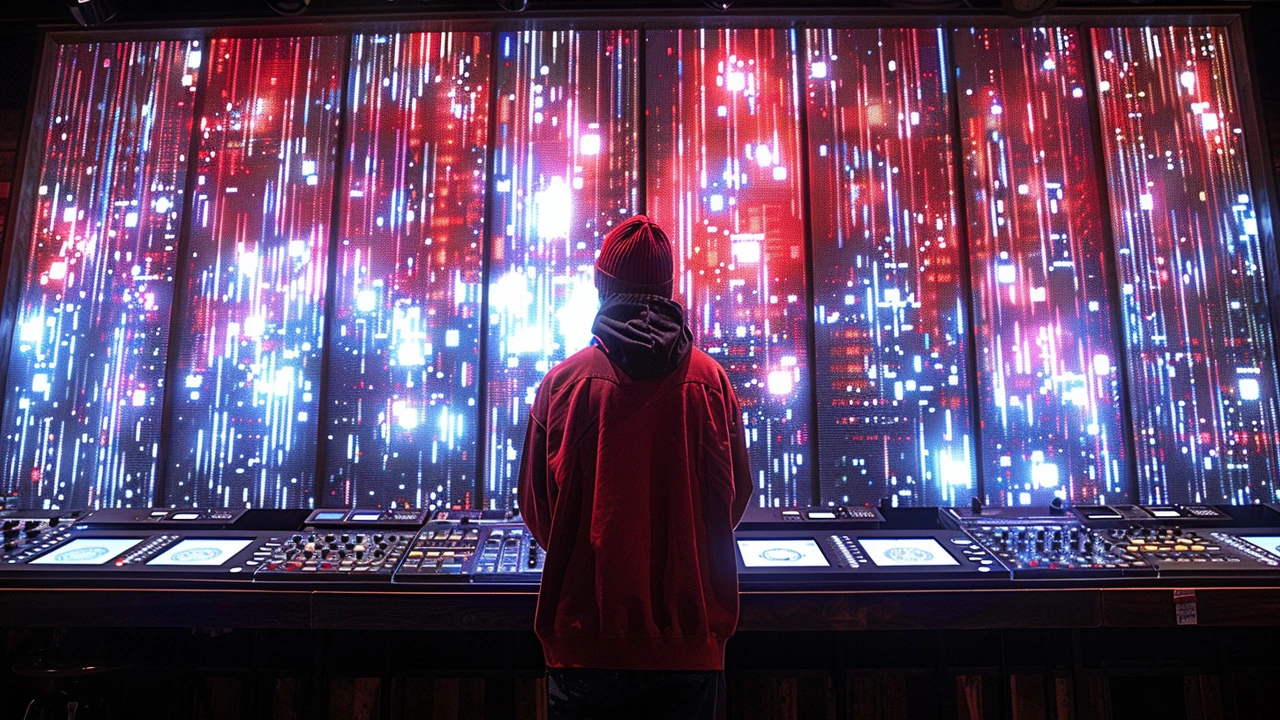The Evolution of Hip-Hop Production
When we talk about the marriage of hip-hop and technology, it's impossible not to start with the evolution of music production. The genre itself was birthed from technological innovation, with DJs in the late 70s and early 80s experimenting with turntables and mixers to create new sounds. Fast forward to today, and the production landscape has dramatically transformed, thanks largely to advances in technology. Digital Audio Workstations (DAWs), samplers, and synthesizers have become the backbone of modern hip-hop production, providing artists with an unparalleled level of creative freedom. The likes of FL Studio, Ableton, and Logic Pro have democratized music production, making it accessible to anyone with a laptop.
Impact of Streaming Services on Hip-Hop
Streaming services have redefined how we consume music, and hip-hop has been at the forefront of this shift. Platforms like Spotify, Apple Music, and Tidal have made it easier than ever for hip-hop artists to reach global audiences, bypassing traditional barriers to entry in the music industry. Moreover, the data-driven nature of these platforms has given artists insights into their listeners, informing marketing strategies and tour locations. However, this ease of distribution has also saturated the market, making it increasingly difficult for new artists to stand out without significant marketing efforts or viral hits.
Role of Social Media in Hip-Hop's Rise
Social media has been a double-edged sword for the hip-hop community. On one hand, platforms like Instagram, Twitter, and TikTok have allowed artists to engage with their fans on a personal level, share behind-the-scenes content, and tease new releases. On the other hand, the quest for viral fame has sometimes led to a focus on short-lived trends over substance. Despite these challenges, social media has undeniably been pivotal in launching the careers of many artists who might otherwise have gone unnoticed.
The Rise of Digital Music Production
The accessibility of digital music production tools has been a game-changer for hip-hop artists and producers. With a laptop and a few software applications, anyone can start producing music from their bedroom. This democratization of music production has led to a surge in creativity and a blurring of genre lines, with hip-hop beats now influencing a wide range of music styles. While purists sometimes lament the loss of analog warmth, there's no denying the revolutionary impact of digital production on the hip-hop soundscape.
Interactive Live Performances
Technology hasn't just changed how hip-hop music is produced and consumed; it's also transformed live performances. Artists now incorporate elaborate visual effects, live streaming, and interactive elements into their shows, creating immersive experiences for their audiences. Technologies like augmented reality (AR) and virtual reality (VR) are beginning to make their way into live music, offering exciting possibilities for future hip-hop performances.
AI and Machine Learning in Hip-Hop Production
The potential of AI and machine learning in music production is both exciting and controversial. Some fear that AI could homogenize music or replace human creativity, but others see it as a tool to enhance the artist's vision. In hip-hop, AI is being used for everything from beat-making to lyric generation, opening up new avenues for creativity. While it's unlikely that machines will replace human artists, they can certainly augment the music-making process in innovative ways.
Educational Opportunities in Music Technology
As technology becomes increasingly integral to hip-hop, there's a growing need for education in music technology. Many institutions now offer courses in digital music production, sound design, and even music business, catering to the next generation of hip-hop artists and producers. These educational opportunities not only help students hone their craft but also prepare them for the realities of a rapidly changing music industry.
The Future of Hip-Hop and Technology
Looking ahead, the fusion of hip-hop and technology holds limitless potential. From advances in VR and AR to the ongoing evolution of AI in music production, the future promises even more ways for artists to express themselves and connect with fans. As technology continues to evolve, so too will hip-hop, adapting and innovating in ways we can only begin to imagine.

